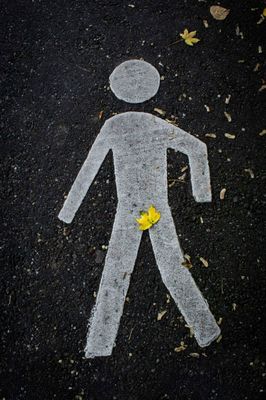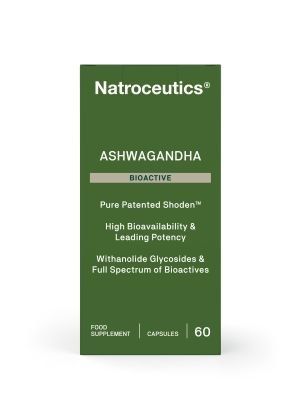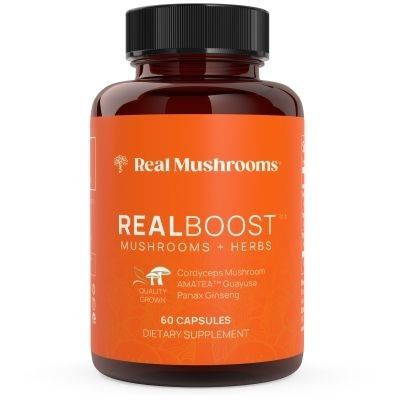
Tongkat Ali 100ml
Revive Wellness
$59.00
Tongkat Ali 100 ml
Botanical Name: Eurycoma longifolia
Glycetract Extract
Plant Part: Root
Ethanol content: 0%
Dose: 5 mls 1-2 times daily
- Supports testosterone levels in older men and the androgen-deficient
- Supports libido or sexual dysfunction in men
- Support for reduced fertility in men
- Supporting vitality, energy levels and muscle strength, particularly in older men and women
Avoid use in Pregnancy and breastfeeding and not suitable for children.
Studies
A review of five controlled trials concluded that a significant improvement in serum total
testosterone levels after treatment with Tongkat Ali extract was mostly reported in both healthy
volunteers and hypogonadal men. A total of two hundred and sixty-seven men participated in these trials. Pooling of the results found a significant increase in total testosterone levels in those receiving Tongkat Ali (standardised mean difference [SMD]: 1.35; p=0.001). There were increased testosterone levels in men with hypogonadism (baseline testosterone < 10.4 nmol/L; two trials) and in men with normal levels (three trials), after Tongkat Ali supplementation, although the increase was only significant in the hypogonadism group (SMD: 1.86; p=0.002).27 (As a rule of thumb, a SMD greater than 0.8 is considered to represent a large effect.28) The herb was taken for between two weeks and six months. One trial (with healthy men) showed high risk of bias.27 Four trials used the specific proprietary extract (100-600 mg/day) and in one trial the extract was undefined.
A randomised, double-blind trial compared Tongkat Ali specific proprietary extract (200 mg/
day) and placebo, with and without exercise training, on erectile function in androgen-deficient,
ageing men. Thirty-seven men completed the six-month trial. The average age was 47.4 years,
and participants had baseline serum total testosterone levels less than or equal to 12.0 nmol/L.
Erectile function was assessed by questionnaire which explored five domains: erectile function,
orgasmic function, sexual desire, sexual satisfaction and general satisfaction. For those treated
with Tongkat Ali alone (without exercise), scores significantly improved from baseline for sexual
satisfaction (by 96%; p=0.002) at four months, and for orgasmic function at one month (by 63%;
p=0.012, with a low effect size). Scores reduced over time, to 49% improvement in orgasmic
function score, and to 20-30% improvement for both domains by six months. Significant
improvements from baseline were observed for erectile function and sexual desire for the
herb plus exercise group: scores improved by 15.2% and 35.6%, respectively at 6 months. No
significant effect was found on the sexual aspects of quality of life for treatment with Tongkat Ali
alone, but a beneficial effect was observed in the herb plus exercise group.25 The control groups
(without aerobic and resistance training) were asked to maintain their current daily activities.29
In a trial involving 102 men with no or only mild erectile dysfunction, treatment with Tongkat Ali
specific proprietary extract (300 mg/day) for 12 weeks was said to increase erectile function
significantly from baseline as compared to placebo,23 however the raw data was not provided.
The raw data from this trial has been published in a review article and indicates a lack of effect
for the herb.30 However, the overall sexual libido score for the herb group significantly increased
between week six and week twelve as compared to placebo, after first declining from baseline to
week six (which also occurred for the placebo group). The baseline total testosterone levels were
16.5 nmol/L and 18.8 nmol/L for the herb and placebo groups, respectively.23
In an uncontrolled study, the male partners of subfertile couples with idiopathic infertility were
treated with 200 mg/day of specific proprietary extract, for one to three cycles (three to nine
months). Follow-up examinations were conducted every three months for three cycles with 75
men at baseline and the end of cycle one, reducing to 49 men (cycle two) and 17 men (cycle
three). Significant improvements in some parameters were found after treatment, particularly
sperm concentration and normal sperm morphology, for the group as a whole. Sperm
concentration was 16.3 million/mL at the end of cycle one, 12.5 (cycle two) and 17.5 (cycle three),
from a baseline of 10.6 million/mL. Normal sperm morphology increased from a baseline of 5.3%
to 8.9% (cycle one), 10.4% (cycle two) and 10.3% (cycle three). Eleven spontaneous pregnancies
occurred (six at the end of cycle one, five at completion of two cycles). Some semen parameters
had improved for the male partners of these women: motility from 44.0% at baseline, to 56.0%
(cycle one) and 58.6% (cycle two); normal sperm morphology, from 10.4% (baseline) to 16.5%
(cycle one) and 16.0% (cycle two).33
Treatment with Tongkat Ali specific proprietary extract (300 mg/day) for twelve weeks did not
produce significant changes on semen parameters compared to placebo, when considering
the results of the entire group of 36 men. There was a nonsignificant increase in semen volume
at week 12 in a subgroup of men with low baseline levels (defined as below the median value)
treated with the herb, although there was an imbalance of baseline values between the two
groups. Sperm motility increased by a significant 44% at week 12 in those with low baseline
levels (defined as above or below the median value) who were treated with the herb, although a
nonsignificant increase of 23% was observed for similarly affected men taking placebo. It is not
known whether there was a significant difference between the groups.23 These results can only
be regarded as preliminary.
An uncontrolled study observed significant improvement in quality of life in 12 physically-active
women, aged between 57 and 72 years, treated with 400 mg/day of specific proprietary extract
for five weeks. The Aging Females’ Symptoms questionnaire was used, which incorporated the
following symptoms: heart discomfort, sleep problems, depressive mood, irritability, anxiety,
physical and mental exhaustion, sexual problems, bladder problems, dryness of vagina, joint and
muscular discomfort. Examples of improvements: the incidence of severe physical and mental
exhaustion decreased from three women to none and depressive mood decreased from four
women to one after treatment.35
In an uncontrolled study with 12 physically active, older women who were treated with 400
mg/day of specific proprietary extract for five weeks, free and total testosterone levels were
significantly increased. For example, total testosterone increased from a baseline of 1.21 to 1.52
nmol/L (p<0.05) at week three, and to 1.80 nmol/L (p<0.01) at week five. The results were still
well within the normal range.35
An improvement in the blood levels of natural killer cells in athletes after a bout of endurance
running in the heat was found for short-term administration of Tongkat Ali extract (150 mg/day
for seven days),40 but there was no effect on immune function parameters in men undergoing
exercise in an eight-week study (400 mg/day).41 On the basis of the product manufacturer, it is
likely that these trials used the specific proprietary extract.
A beneficial effect of the extract on muscle strength/function and endurance has not been
clearly demonstrated, as observed from the variation of results from numerous clinical studies.
These trials involved healthy adults, the physically active, recreational athletes and elite athletes,
aged approximately 20 to 52 years.23,26,41-50 Although some of these trials were of short duration
(e.g. seven days), many were not (4-12 weeks).
• A study with 14 healthy men found a significant increase in muscle strength compared to
placebo.43
• A study with 40 heathy men found a beneficial effect for one muscle stength test: the mean
force for the back and leg test significantly increased from baseline for both the Tongkat
Ali and placebo groups, but to a greater extent in the herb group (although it is not known
whether the difference between the groups was significant). No effect was observed for the
other muscle strength test or the two muscle endurance tests.26
• A study involving 31 women in their early 50s undergoing strength training found a
significant improvement for one of four physical performance tests compared to placebo
(the stair climb), although no effect on muscle strength.45
• Nine studies found no effect or no significant effect compared to placebo on muscle
strength, muscle power, muscle function, muscle endurance and endurance running capacity.
The participants were healthy men (two studies), male recreational athletes (two studies),
male elite althletes (one study), rugby players (three studies; cited as male in two studies)
and exercise-trained men and women (one study).23,41,42,44,46-50
References available on request.

